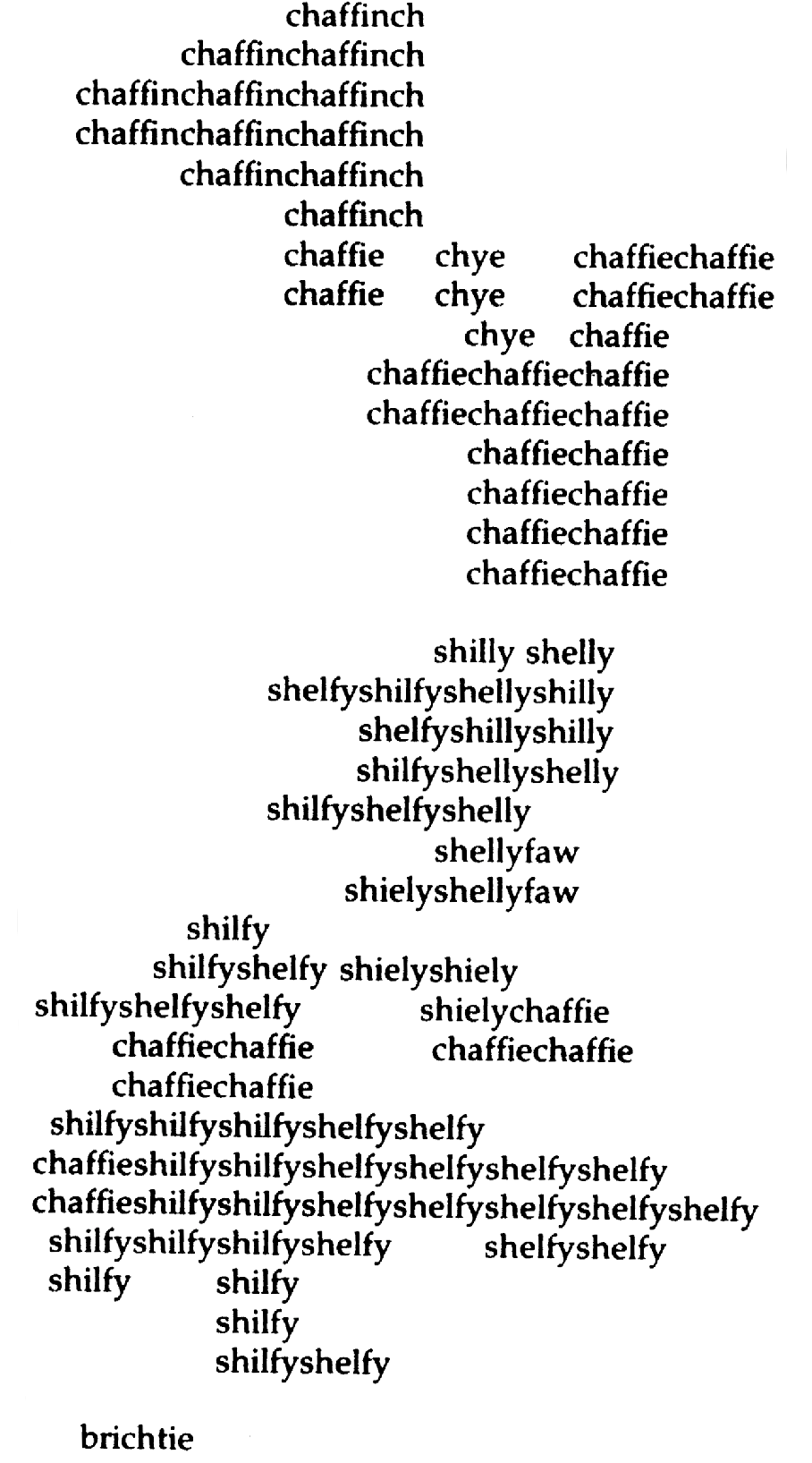Scots, Birds, and Names
On Strange Maps, I found the following piece of concrete poetry: A Chaffinch Map of Scotland, by Edwin Morgan.
"The chaffinch is "a most common of European finch species is noted for its powerful and typical song. Chaffinches have an innate ability to sing, but also adapt to the songs of ‘teachers’ in their vicinity. This explains the curious incidence of regional variation in their song, a trait their song shares with human speech. This poem is a map of Scotland, or at least those areas in Scotland where the chaffinch is endemic. It shows the different names used in Scottish dialects for chaffinch, varying from chaffinch in the north over shielyfaw in the middle to britchie." (Strange Maps).
Gorgeous! even more so if you consider that variations in the birds' names might reflect variations in the birds' songs. After all, many species of birds are named after their most typical song. Since the birds' dialect is itself culturally transmitted, then the distribution of birds' names would be influenced, simultaneously, by animal-to-animal cultural transmission (songs being copied from one bird to the other), animal-to-human transmission (birds being named after their song), and human-to-human transmission (people naming birds after the fashion of their country).




Dan Sperber 16 January 2009 (22:30)
Very, very pretty! And it raises the more general issue of cross-species cultural transmission. In general, one would expect it not to occur or to occur in closely related species, the most famous (and speculative) example being that of cultural transmission between Neanderthal and modern Sapiens. Of course, humans, who will try anything -- this, Rodney Needham pointed out to me a long time ago, is why Bill Arens’ claim that cannibalism is a myth is unlikely to be true --, have tried to start cultural transmission in other species for scientific purpose. This had been informally done by Sue Savage-Rumbaugh’s at Yerkes with the bonobo Kanzi and his relatives, and is being done in a more systematic way by, in particular, Andy Whiten and his collaborators at St Andrews, who have started transmission chains among chimpanzees (Nicolas Claidière and I have submitted an article where we discuss these experiments). Cross-species cultural transmission could also have happened in domestication, but are there any cases of, say, humans expecting domesticated animals to learn their artificial skills from one another, rather than, each time, from their human trainer?